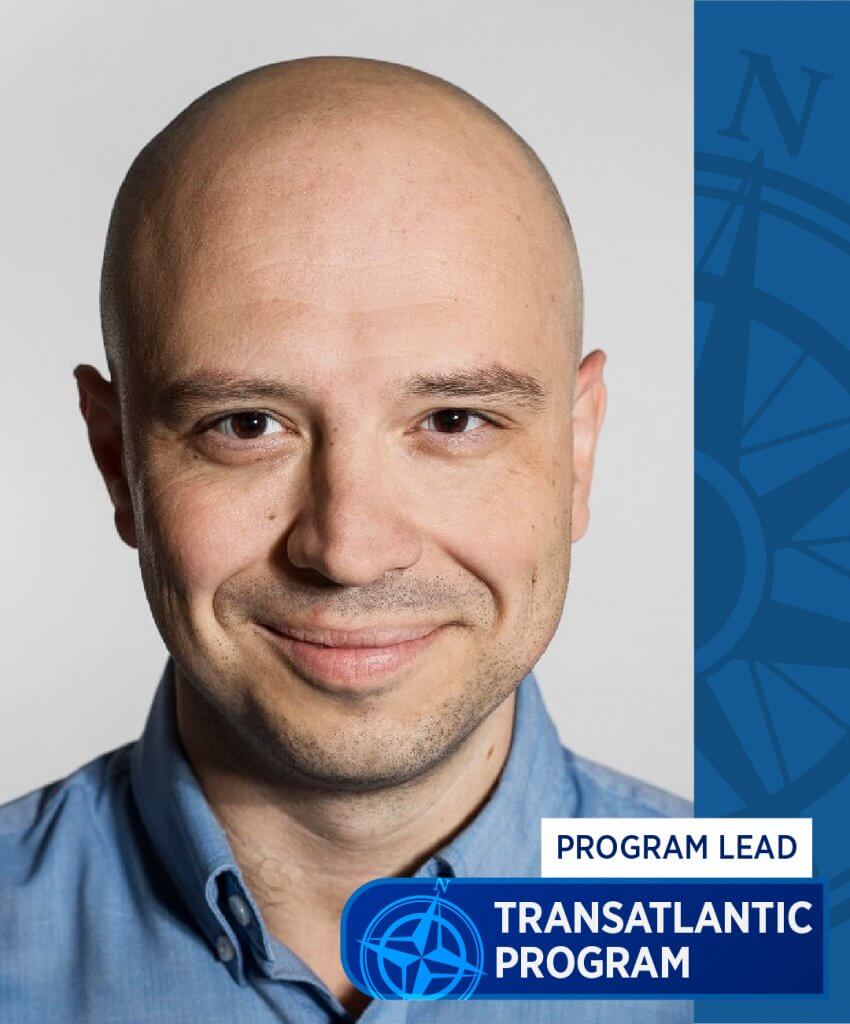- Home
- About
- Experts
- Issues
- Projects
- CNAPS (Center for North American Prosperity and Security)
- The Promised Land
- Voices that Inspire: The Macdonald-Laurier Vancouver Speaker Series
- Dragon at the door
- Canada on top of the world
- Letter to a minister
- Justice Report Card
- The Great Energy Crisis
- DisInfoWatch.org
- Managing Indigenous Prosperity
- Judicial Foundations
- Landmark Cases Council
- Defending The Marketplace of Ideas
- Reforming the University
- Past Projects
- Digital Policy & Connectivity
- Double Trouble
- Canada and the Indo-Pacific Initiative
- The Transatlantic Program
- COVID Misery Index
- Speak for Ourselves
- The Eavesdropping Dragon: Huawei
- Talkin’ in the Free World with Mariam Memarsadeghi
- An Intellectual Property Strategy for Canada
- Munk Senior Fellows
- A Mandate for Canada
- Confederation Series
- Fiscal Reform
- The Canadian Century project
- Fixing Canadian health care
- Internal trade
- From a mandate for change
- Size of government in Canada
- Straight Talk
- Labour Market Report
- Leading Economic Indicator
- Centre for Advancing Canada’s Interests Abroad
- Indigenous Prosperity at a Crossroads
- Events
- Latest News
- Libraries
- Donate
- Home
- About
- Experts
- Issues
- Projects
- CNAPS (Center for North American Prosperity and Security)
- The Promised Land
- Voices that Inspire: The Macdonald-Laurier Vancouver Speaker Series
- Dragon at the door
- Canada on top of the world
- Letter to a minister
- Justice Report Card
- The Great Energy Crisis
- DisInfoWatch.org
- Managing Indigenous Prosperity
- Judicial Foundations
- Landmark Cases Council
- Defending The Marketplace of Ideas
- Reforming the University
- Past Projects
- Digital Policy & Connectivity
- Double Trouble
- Canada and the Indo-Pacific Initiative
- The Transatlantic Program
- COVID Misery Index
- Speak for Ourselves
- The Eavesdropping Dragon: Huawei
- Talkin’ in the Free World with Mariam Memarsadeghi
- An Intellectual Property Strategy for Canada
- Munk Senior Fellows
- A Mandate for Canada
- Confederation Series
- Fiscal Reform
- The Canadian Century project
- Fixing Canadian health care
- Internal trade
- From a mandate for change
- Size of government in Canada
- Straight Talk
- Labour Market Report
- Leading Economic Indicator
- Centre for Advancing Canada’s Interests Abroad
- Indigenous Prosperity at a Crossroads
- Events
- Latest News
- Libraries
- Donate
The Transatlantic Program
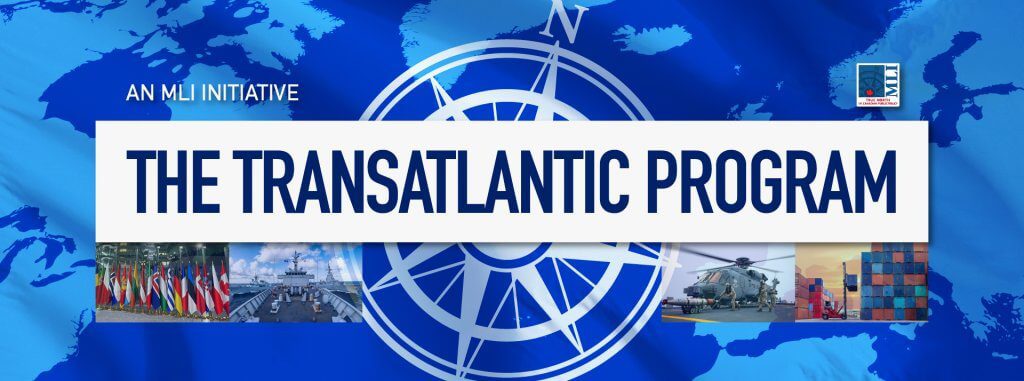
The central hub for understanding the challenges we face in the Transatlantic region, and for promoting an essential role for Canada in meeting them.
Canada is the quintessential Transatlantic country. From its early French and British colonial origins to the founding of Confederation to the establishment of NATO after the Second World War, Canadian security and prosperity are intimately tied to security and prosperity of both sides of the Atlantic. Our relations with our American and European allies are, and will continue to be central in protecting and defending Canadian security, prosperity, and values.
Yet, there is a dearth of initiatives in the Canadian public policy space dedicated to the broader Transatlantic area beyond a focus on individual organizations such as NATO or the EU. The Transatlantic Program at the Macdonald-Laurier Institute aims to remedy this state of affairs and be the central hub for understanding the challenges we face in the Transatlantic area and promoting an essential role for Canada in meeting them.
The remit of the Program is broad; from the Canadian role in securing North America to protecting Canadian sovereignty in the Arctic; from defending our European allies and partners from the Baltic Sea to the Black Sea against subversion and aggression to enhancing our partnerships with our major allies such as the UK, Germany, and France. Bringing together our extensive work on this topic under the banner of this Transatlantic Program, we aim to continue to be a strong voice for Transatlanticism in Canadian public discourse and, in keeping with MLI’s motto, make bad foreign policy unacceptable in Ottawa.
Canada is an Arctic nation, an Indo-Pacific nation, and has played an instrumental role in shaping the postwar Transatlantic order. Yet after the Cold War, a decay in policy innovation has gripped the Transatlantic community, and rivalry by authoritarians has resumed. There is an urgent need to understand these realities, give voice to new ideas, and update the region’s architecture.
This MLI initiative, led by Balkan Devlen, aims to provide a clear guide informing Canadian foreign policy in a realigning Transatlantic region, on shared interests from Baltic to Black Seas, the Arctic/High North to the Mediterranean, and on issues ranging from cybersecurity to populism.
– Shuvaloy Majumdar, founder and program director of MLI’s Centre for Advancing Canada’s Interests Abroad.
Papers, Publications, and More



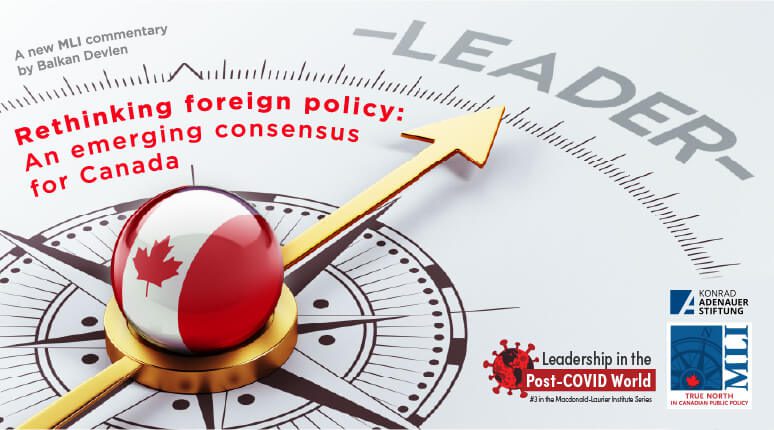
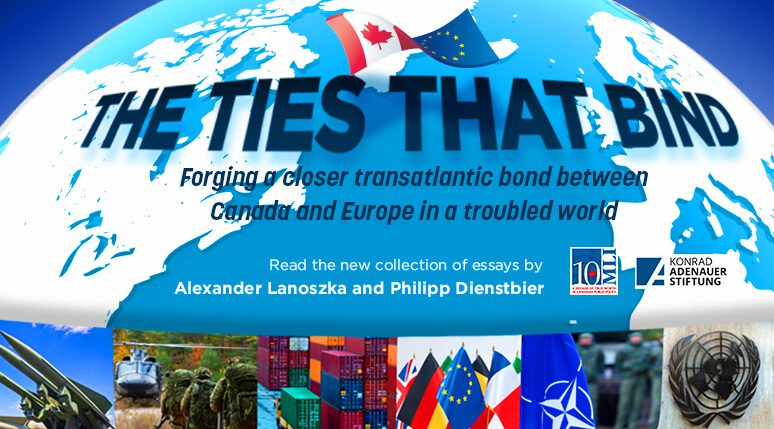
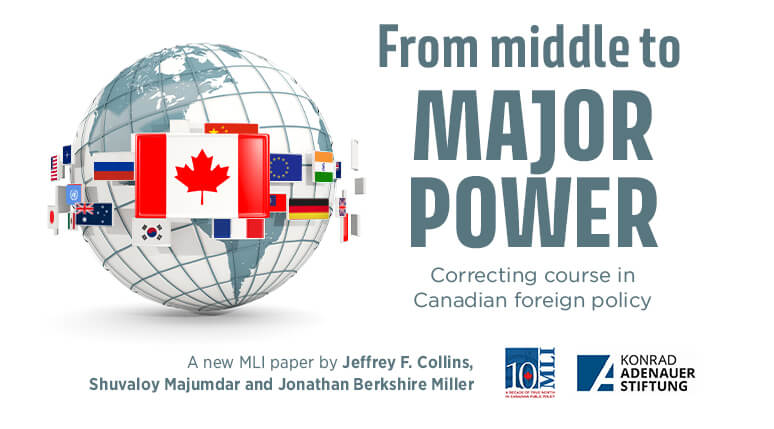
Webinar Event – Canada in the Baltics Initiative
On April 27, the Macdonald-Laurier Institute was honoured to host His Excellency Egils Levits, President of the Republic of Latvia, as part of the Canada and the Baltics Strategic Dialogue. While much of this dialogue was conducted as a closed-door meeting under Chatham House rules, we are pleased to share President Levits’ remarks and the surrounding commentary.
For three years now, the Macdonald-Laurier Institute has made Canada’s relationships and security commitments in Eastern Europe a major pillar of our foreign policy work.
Beginning with a series of events and publications establishing the rationale for extending Canada’s Enhanced Forward Presence mission in Latvia, through our ground-breaking work on Russian disinformation efforts in the West, to our meeting in the spring of 2019 with political directors and ambassadors from the three Baltic nations, MLI has been the Canadian leader in promoting strong ties between Canada and the Baltics.
This important dialogue is a continuation of that work.
The full event can be watched here:
Webinar Event – Standing Guard: What Have We Learned from the Enhanced Forward Presence on NATO’s Frontier?
In 2021, NATO’s enhanced Forward Presence (eFP) is heading into its fourth year. Canada’s commitment as the Framework Nation for the eFP battlegroup in Latvia is currently its largest foreign military deployment. It is also one of the few overseas missions that has not been scaled back due to COVID-19.
Yet, there is a dearth of initiatives in Canadian public policy space that is dedicated to the transatlantic area beyond a focus on individual organizations such as NATO or the EU. “The Transatlantic Program at the Macdonald-Laurier Institute aims to remedy this state of affairs” says MLI Senior Fellow Dr. Balkan Devlen, who leads this new initiative at the Institute, “and be the central hub for understanding the challenges we face in the Transatlantic area and promote a more active role for Canada in dealing with them.”
To this end, MLI hosted a webinar launch for a new volume released by the NATO Defense College, titled Lessons from the Enhanced Forward Presence, 2017-2020. This important publication, with contributions from experts from across the transatlantic, is edited by Alexander Lanoszka and MLI senior fellows Alex Moens and Christian Leuprecht. The program for this event can be found here.
The full event can be watched here:
Highlights
Mark Carney misread Havel and misled the world: Jan Matejcek in the National Post
This article originally appeared in the National Post. By Jan Matejcek, February 2, 2026 I grew up in Communist Czechoslovakia,...
The case for American ownership of Greenland is weak: Heather Exner-Pirot and Christopher Coates in the National Post
This article originally appeared in the National Post. By Heather Exner-Pirot and Christopher Coates, January 12, 2026 It may have...
Make Russia pay for Ukraine – not taxpayers: Tim Sargent, Fen Osler Hampson, and Allan Rock in CapX
This article originally appeared in CapX. By Tim Sargent, Fen Osler Hampson, and Allan Rock, December 18, 2025 While peace proposals...
The West can no longer ignore Russian advances: Joe Varner in Real Clear World
This article originally appeared in Real Clear World. By Joe Varner, December 11, 2025 While Russian troops advance across Ukrainian fields,...
When the West wavers, dictators advance—that’s why Trump’s Ukraine ‘peace plan’ threatens global security: Joe Varner for Inside Policy
By Joe Varner, November 26, 2025 The greatest danger facing the West today is not the strength of its adversaries...
Canada is shopping for new fighter jets—and on the verge of making a disastrous decision: Richard Shimooka in The Hub
This article originally appeared in The Hub. By Richard Shimooka, November 18, 2025 Canada will be getting new fighter jets....
Canada’s lost decade in foreign policy: Joe Varner for Inside Policy
By Joe Varner, November 17, 2025 Ten years after promising a return to global relevance, Canada’s foreign policy is defined...
Don’t be complacent Canada, Russia’s imperialism looms at our doorstep: Marcus Kolga in the Toronto Star
This article originally appeared in the Toronto Star. By Marcus Kolga, November 5, 2025 Over the past decade, Russian President...
Newsletter Signup
|
|
Thank you for Signing Up |

Macdonald-Laurier Institute
323 Chapel Street, Suite #300
Ottawa, Ontario, K1N 7Z2 Canada
613.482.8327
Support Us
Support the Macdonald-Laurier Institute to help ensure that Canada is one of the best governed countries in the world. Click below to learn more or become a sponsor.
© 2023 Macdonald-Laurier Institute. All Rights reserved.

